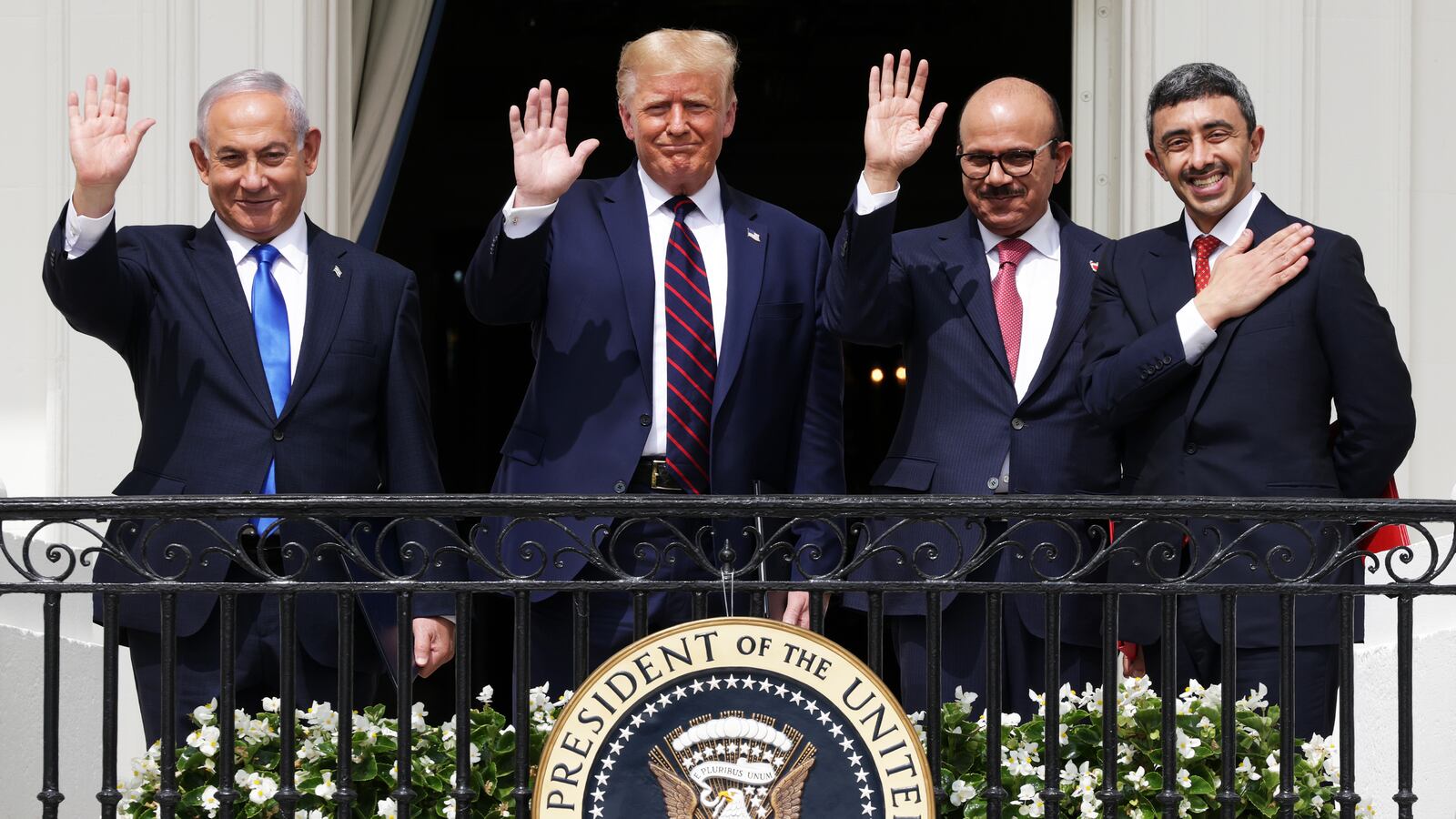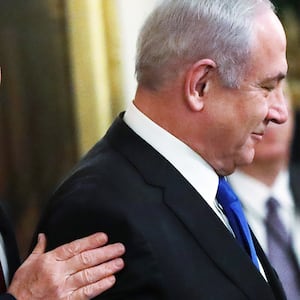Donald Trump did something pretty amazing this week: He brokered a Middle East peace deal that normalized relations between Israel and two Arab nations. And the public barely noticed.
Make no mistake. This was a historic deal, reshaping the Middle East and providing security for Israel, all while further isolating the Islamic Republic of Iran and its terrorist proxies. And it could be a harbinger of things to come; there is speculation that Saudi Arabia, Morocco, Sudan, and Oman could follow. This could snowball for the good.
Yet, if you blinked, you might have missed it.
By Wednesday morning, the story was buried under raging wildfires, tempestuous hurricanes, deadly viruses, and other eschatological plagues being visited upon us—not to mention an ABC News town hall event with Trump.
Americans generally care little about foreign policy, so it’s not surprising the public didn’t exactly lap this up. But was it a demand problem or a supply problem? The Abraham Accords, whereby the United Arab Emirates and Bahrain promised, among other things, peaceful coexistence and diplomatic relations (including the exchange of embassies), is objectively a big deal—and certainly deserved more media attention than it garnered.
Indeed, while it’s too early to say how this development will play out, prominent Never Trump conservative podcaster Jamie Weinstein went so far as to suggest this might even be “the #1 American foreign policy achievement of the 21st century.” If you’re tempted to think this is overblown, what’s better? Sure, Obama fans might see the Iran deal as more important, and George W. Bush loyalists might invoke PEPFAR, but it’s hard to argue that this isn’t at least in the conversation.
So what accounts for the relatively scant press coverage (some of which involved commentary on the lack of social distancing at the signing) surrounding this historic accord?
It’s understandably hard for a lot of folks in the media to give Trump credit for a major accomplishment. Especially since there’s just 46 days until the election. Especially since he has lied and hyped so many things that don’t amount to a hill of beans. And especially since he has flooded the zone with a million other controversies and scandals. In this context, it might sound insane to suggest this man is simultaneously worthy of impeachment and a Nobel Peace Prize.
If that’s too much for you to swallow, how about at least a little bit of grudging praise?
I’m not alone in thinking this is warranted. “I wish this was getting more attention and credit,” lamented Meghan McCain on The View. "I know that it's hard to give any wins to the Trump administration, but I always try to be fair and call balls and strikes like we see it,” she said. “You're seeing a total geopolitical realignment in the Middle East against Iran and for Israel. And there's rumors that Saudi Arabia could be joining."
As a thought experiment, imagine if a Democratic president helped broker a similar deal. Actually, we don’t have to imagine.
When President Bill Clinton was photographed with Israeli Prime Minister Yitzhak Rabin and PLO chairman Yasser Arafat shaking hands on the South Lawn of the White House, it was greeted with much hope and fanfare. Arafat, Rabin, and Shimon Peres even went on to receive the Nobel Peace Prize in 1994. Never mind the fact that it didn’t actually result in peace. It got buzz.
But crediting Trump isn’t just hard for all the aforementioned reasons. There’s also this: It undermines policy assumptions made by liberal elites like The Atlantic’s Jeffrey Goldberg, former Deputy National Security Adviser Ben Rhodes, and former Secretary of State John Kerry. Take, for example, this video of Kerry confidently predicting there can be no Israel-Arab deal before the Palestinian situation is resolved. Indeed, thanks to the deal Trump just helped broker, rather than being the linchpin for peace in the Middle East, Palestinians may now feel pressure to grudgingly accept a resolution, as the Palestinian Authority may realize it is now negotiating from a weakened position.
From a domestic political perspective, what this effectively means is that some experts in the U.S. foreign policy establishment and the media may now, if they’re not careful, find themselves in the position of rooting against this peace deal. Rather than admitting they were wrong about their assumptions, it’s easier to pretend what just happened is insignificant—to deride it as the mere formalization of a fait accompli, to say it’s just about trading arms, or to point out this is a “peace” deal between nations that were not actually at war.
Even if you think what transpired on Tuesday is a betrayal of the Palestinians—something that could possibly inflame tensions in the region, rather than calming them—it would still make sense to cover this week’s accords as being at least as newsworthy as Bob Woodward’s book.
I still have grave concerns about his foreign policy, but it’s important to give credit where it’s due. Trump has put points on the board that any normal president would get credit for, including the fact that Iranian General Qassem Soleimani, a supporter of terrorism, is dead (without the horrible repercussions some of us predicted), that the ISIS Caliphate is destroyed, and now, that it increasingly looks as though Sunni monarchies are preparing for peace with Israel.
Don’t get me wrong, Trump has earned most of the negative attention he has garnered—much of it from yours truly. But when the media fails to give credit where due, we are helping prove Trump right about us. And not just that. We are confirming what so many of Trump’s fans already believe about us... that we won’t give him a fair shake. That’s why they’re tuning us out.
In one fell swoop, Trump got a diplomatic breakthrough and further evidence that the media is biased against him. By my count, that’s two wins for Trump (three, if you count Big Ten football).







